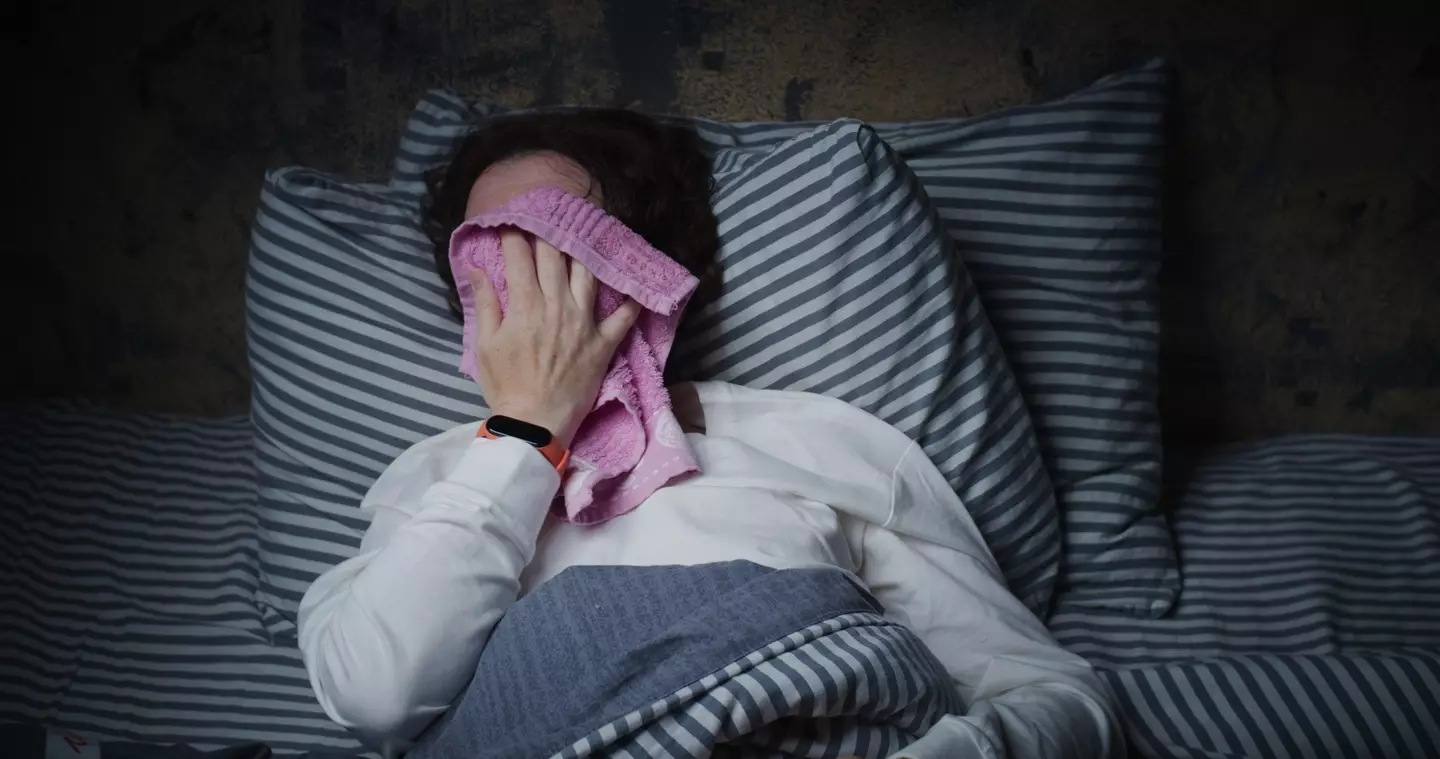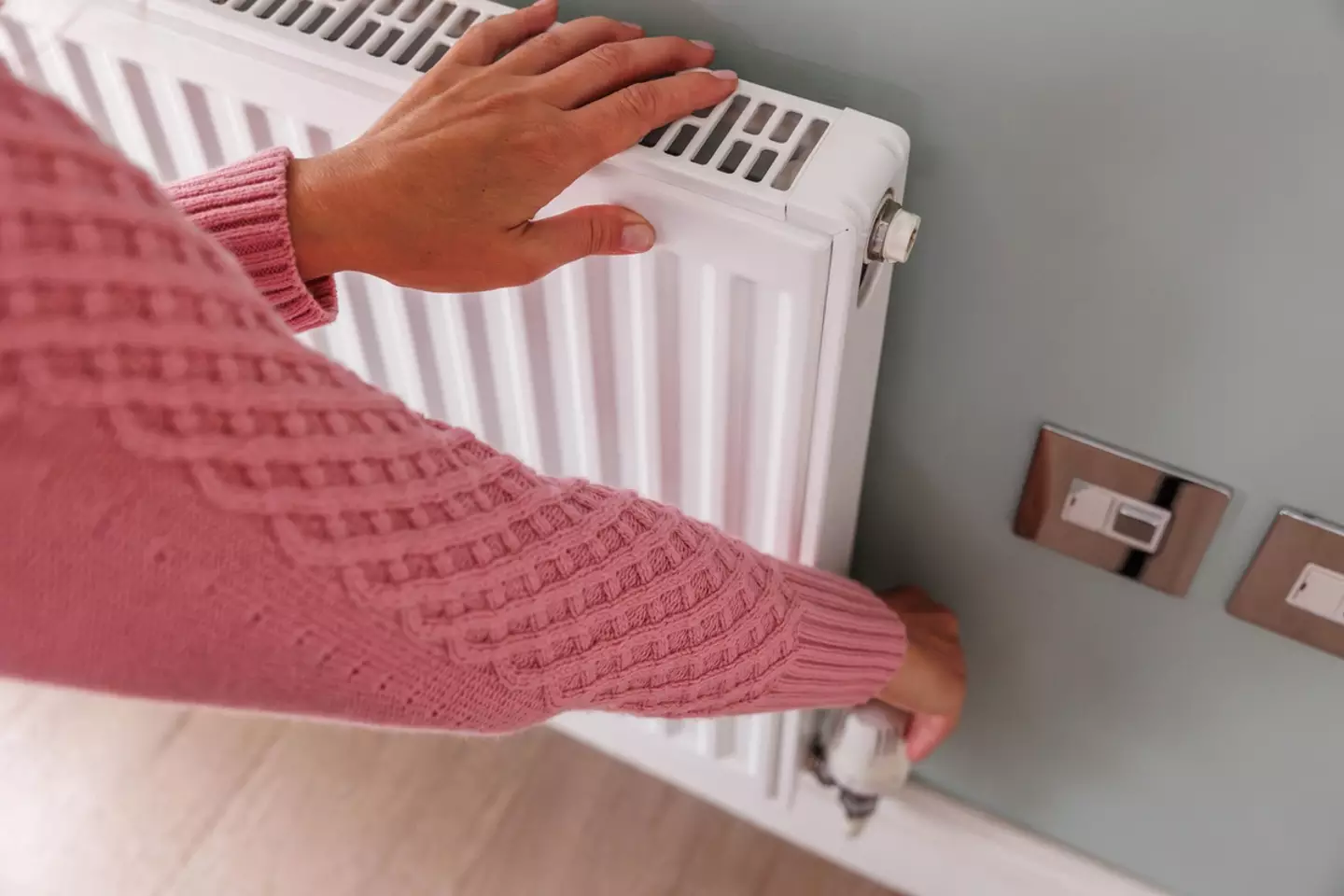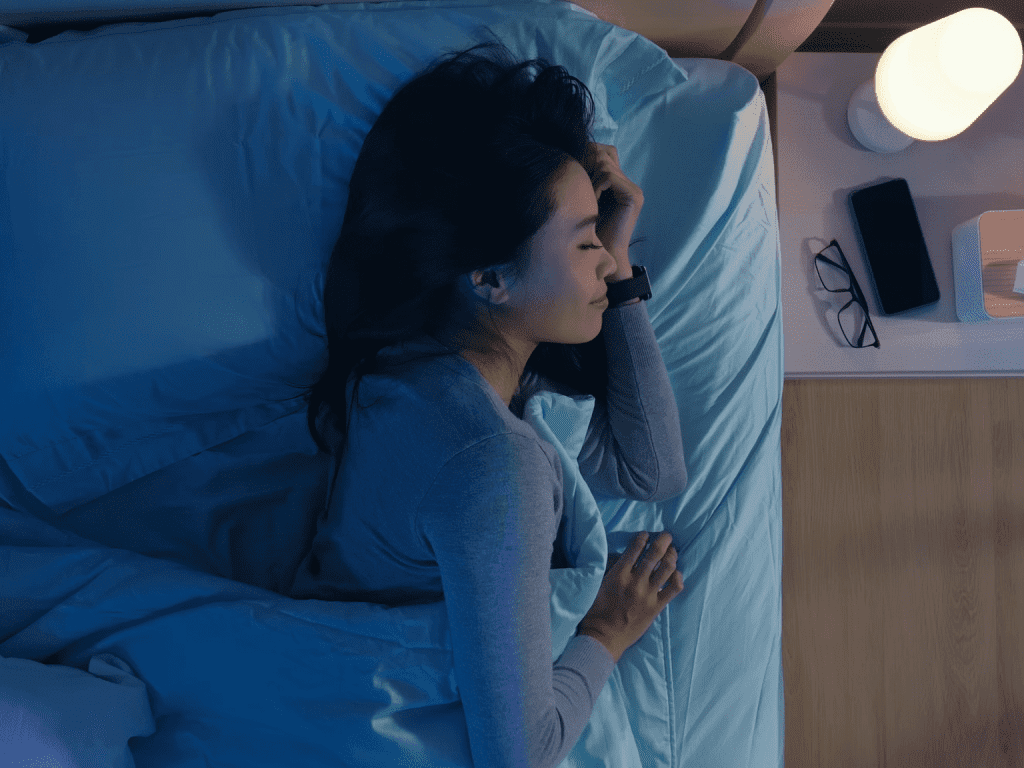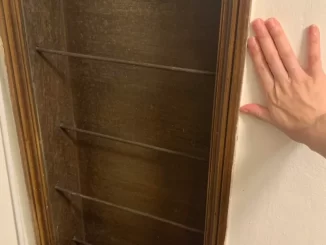As the chilly weather settles in, many of us are tempted to crank up the heating and cozy up under a blanket. But before you set the thermostat for an all-night warmth fest, health experts have some serious warnings about sleeping with the heating on. While staying warm during winter nights is crucial, leaving the heater running overnight could have unintended health consequences.

It won’t be helping your sleep. (Getty stock)
Why Do People Leave the Heating On Overnight?
It’s that time of year when the days get shorter, the temperatures drop, and winter coats come out of storage. As the cold seeps into homes, it’s natural to reach for the heating dial. Some people even choose to keep it running throughout the night, preferring warmth over the frigid morning chill. A study by Slumberdown found that nearly 29% of Brits leave the heating on while they sleep. But is that really a good idea?
Let’s explore why keeping the heating on overnight can do more harm than good and how it affects your health.
Impact of Sleeping with the Heating On: Health Risks You Need to Know
While sleeping in a warm room may seem comforting, it can negatively impact your health in several ways. Here’s what doctors are warning about:
1. Disrupted Sleep Quality
When you sleep with the heating on, you may not realize that it can actually disturb your rest. According to the Sleep Foundation, the ideal bedroom temperature for a good night’s sleep ranges from 15.6°C to 20°C (60°F to 68°F). Your body’s core temperature naturally drops at night, signaling it’s time for rest. However, if your bedroom is too warm, your body struggles to cool down, which can lead to discomfort and even night sweats.
- How It Affects Sleep: An overly warm environment can cause you to wake up feeling hot and sweaty, interrupting deep sleep cycles. This means you’re likely to experience poorer sleep quality and wake up feeling groggy and less rested.
- What to Do: Instead of keeping the heating on, consider using an extra blanket, wearing warm pajamas, or using a hot water bottle to maintain a cozy yet not-too-hot sleeping environment.
2. Dry Air and Dehydration
Indoor heating can dry out the air, and that dry air can cause dehydration. This may seem harmless, but it can actually lead to several problems:
- Dry Nose and Throat: The warm air from heating systems can dry out the nasal passages and throat, making them more susceptible to irritation. This is especially problematic for people who already suffer from respiratory issues, such as asthma or allergies.
- Increased Risk of Allergies and Asthma: Research from the Medical University of Warsaw indicates that indoor heating methods can contribute to allergic rhinitis and exacerbate asthma symptoms. Dry, heated air can irritate the airways, trigger sneezing, and even lead to coughing fits, especially during the night.
- Solution: To counter the dry air, try using a humidifier to maintain moisture in the room or keep a glass of water nearby to stay hydrated throughout the night.
How Sleeping with the Heating On Affects Your Skin
When the heater runs all night, it can lead to skin issues that go beyond mere dryness. The heat sucks out moisture from the air, making it difficult for your skin to stay hydrated.

The cold is creeping in. (Getty stock)
3. Increased Skin Dryness and Irritation
Waking up to dry, flaky skin? Your heating system may be to blame. Dr. Hiba Injibar from Harley Street’s Dermasurge Clinic emphasizes that the warm, dry air can worsen skin dryness and irritate existing conditions like eczema or dermatitis.
- How It Affects Skin: The low humidity caused by central heating can strip the skin of its natural moisture, leading to dryness, itching, and even redness.
- Skin Care Solution: Invest in a quality moisturizer to apply before bed and consider using a humidifier to maintain humidity levels. You can also switch off the heater at night to give your skin a break and help it retain its natural moisture.
Financial Impact: Sleeping with the Heating On Costs You More
Apart from the health risks, sleeping with the heating on could also burn a hole in your wallet. Energy costs tend to rise in colder months, and running the heater all night only adds to your utility bill.
4. High Energy Bills
Leaving the heating on overnight increases energy consumption, leading to higher bills. It’s a waste of energy that can easily be reduced by simply turning off the heat before bedtime or using a programmable thermostat to manage the temperature more efficiently.
- Save Money: Set your thermostat to lower the temperature while you sleep or use a timer to ensure the heater switches off at a certain time. Not only will this reduce your energy bill, but it will also help maintain a more comfortable sleeping environment.
Alternatives to Sleeping with the Heating On
So, what can you do to stay warm at night without keeping the heating on? Here are some practical alternatives:
5. Layer Up with Blankets and Bedding
One of the simplest ways to stay warm is to use thermal blankets and flannel sheets, which help retain body heat without overheating the room.

6. Wear Warm Sleepwear
Opt for cozy, breathable pajamas made from cotton or fleece. Layering up can help you maintain body heat without the need for artificial warmth.
7. Use a Hot Water Bottle or Electric Blanket
These old-school methods provide targeted warmth, keeping you toasty throughout the night. Just remember to follow safety guidelines when using electric blankets.
Conclusion: Stay Warm, but Stay Safe
While sleeping with the heating on might seem like a convenient way to stay warm, it’s clear that there are significant health and financial downsides to this habit. From disrupted sleep to dry skin and increased energy costs, the negatives outweigh the comfort of a toasty room.
Instead, try other methods to stay warm, such as layering blankets, wearing warmer clothing, or using a hot water bottle. By making small adjustments, you can improve your sleep quality, protect your skin, and reduce your energy bill—all while staying safe and healthy as the colder months approach.


